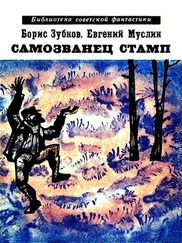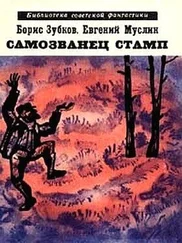Flint, Thomas (1987) “Compatibilism and the Argument from Unavoidability”, Journal of Philosophy 84: 423–440.
Flint, Thomas P. and Freddoso, Alfred J. (1983) “Maximal Power”, in Alfred J.
Freddoso (ed.), The Existence and Nature of God (Notre Dame, IN: University of Notre Dame Press), pp. 81–113.
Foley, John (1994) Creativity and the Roots of Liturgy (Portland, OR: Pastoral Press).
Foster, Kenelm (1959) The Life of Saint Thomas Aquinas, Biographical Documents (London: Longmans, Green).
Frankfurt, Harry (1969) “Alternate Possibilities and Moral Responsibility”, Journal of Philosophy 66: 829–839.
– (1971) “Freedom of the Will and the Concept of a Person”, The Journal of Philosophy 68: 5–20; reprinted in The Importance of What We Care About (Cambridge: Cambridge University Press, 1988).
Gallagher, David M. (1988) “Thomas Aquinas on the Causes of Human Choice”, Dissertation. Catholic University of America, 1988.
– (1990) “Aquinas on Moral Action: Interior and Exterior Acts”, Proceedings of the American Catholic Philosophical Association 64: 118–129.
– (1991) “Thomas Aquinas on the Will as Rational Appetite”, Journal of the History of Philosophy 29: 559–584.
– (1994) Thomas Aquinas and His Legacy, Studies in Philosophy and the History of Philosophy, vol. 28 (Washington, DC: Catholic University of America Press).
Garfinkel, Alan (1993) “Reductionism”, in Richard Boyd, Philip Gasper, and J. D. Trout (eds), The Philosophy of Science (Cambridge, MA: MIT Press), pp. 443–459.
Garrigou-Lagrange, Reginald (1943) The One God (St. Louis and London: B. Herder Book Co.).
– (1950) Christ the Savior: A Commentary on the Third Part of St. Thomas’ Theological Summa (St. Louis and London: B. Herder Book Co.).
– (1955) God: His Existence and His Nature: A Thomistic Solution of Certain Agnostic Antinomies, vol. 2, trans. Dom Bede Rose (St. Louis and London: B. Herder Book Co.).
Gauthier, René Antoine (1961) “Introduction”, in Saint Thomas d’Aquin: Contra
Gentiles, Livre premier (Lyons: P. Lethielleux).
– (1993) Saint Thomas d’Aquin: Somme contre les gentils: Introduction, Collection Philosophie Européane, dirigée par H. Hude (Paris: Editions Universitaires).
Geach, Peter (1969) God and the Soul (London: Routledge & K. Paul).
– (1977) Providence and Evil (Cambridge: Cambridge University Press).
Gellman, Jerome (1977) “Omnipotence and Impeccability”, The New Scholasticism 51: 21–37.
Gilby, Thomas (1955) The Political Thought of Thomas Aquinas (Chicago: University of Chicago Press).
Gilson, Etienne (1956) The Christian Philosophy of St. Thomas Aquinas, trans. L. K. Shook (New York: Random House).
– (1960) Elements of Christian Philosophy (New York: New American Library).
Glannon, Walter (1955) “Responsibility and the Principle of Possible Action”, Journal of Philosophy 92: 261–274.
Greco, John (1993) “Virtues and Vices of Virtue Epistemology”, Canadian Journal of Philosophy, 23: 413–432.
Grene, Marjorie (1972) “Aristotle and Modern Biology”, Journal of the History of Ideas 33: 395–424.
Griffin, David Ray (1976) God, Power, and Evil: A Process Theodicy (Philadelphia, PA: Westminster Press).
Haldane, John J. (1983) “Aquinas on Sense-Perception”, The Philosophical Review 92: 233–239.
Hankley, W. J. (1987) God in Himself: Aquinas’ Doctrine of God as Expounded in the Summa Theologiae (Oxford: Oxford University Press).
Heil, John (1991) “Perceptual Experience”, in Brian McLaughlin (ed.), Dretske and His Critics (Oxford: Blackwell), pp. 1–16.
Henle, Robert John (1956) Saint Thomas and Platonism (The Hague: Martinus Nijhoff).
Hoffman, Joshua (1979) “Can God Do Evil?”, Southern Journal of Philosophy 17: 213–220.
Hoffman, Joshua and Rosencrantz, Gary (1991) “Are Souls Unintelligible?”, in James Tomberlin (ed.), Philosophical Perspectives, vol. 5 (Atascadero, CA: Ridgeview Publishing Co.).
Hoffman, Paul (1990) “St. Thomas Aquinas on the Halfway State of Sensible Being”, The Philosophical Review 99: 73–92.
Hood, John (1995) Aquinas and the Jews (Philadelphia, PA: University of Pennsylvania Press).
Hughes, Christopher (1989) A Complex Theory of a Simple God (Ithaca, NY: Cornell University Press).
Ingardia, Richard (1993) Thomas Aquinas: International Bibliography 1977–1990 (Bowling Green, KY: The Philosophy Documentation Center).
Irwin, Terence H. (1984) ‘The Metaphysical and Psychological Basis of Aristotle’s Ethics’ in Amélie Rorty (ed.), Essays on Aristotle’s Ethics (Berkeley, CA: University of California Press).
– (1988) Aristotle’s First Principles (Oxford: Clarendon Press).
– (1992) “Who Discovered the Will?”, in J. E. Tomberlin (ed.), Philosophical Perspectives 6: Ethics (Atascadero, CA: Ridgeview Publishing Co.).
Jaffa, Harry V. (1952) Thomism and Aristotelianism (Chicago: University of Chicago Press).
Jenkins, John (1997) Knowledge and Faith in Thomas Aquinas (Cambridge: Cambridge University Press).
Johnston, Mark (1992) “Constitution is Not Identity”, Mind 101: 89–105
Jordan, Mark (1983) “The Names of God and the Being of Names” in Alfred
J. Freddoso (ed.), The Existence and Nature of God (Notre Dame, IN: University of Notre Dame Press), pp. 161–190
– (1986) Ordering Wisdom: The Hierarchy of Philosophical Discourses in Aquinas (Notre Dame, IN: University of Notre Dame Press).
– (1993) “Theology and Philosophy”, in Norman Kretzmann and Eleonore Stump (eds), The Cambridge Companion to Aquinas (Cambridge: Cambridge University Press), pp. 232–251.
Kavanaugh, John (2001) Who Count as Persons?: Human Identity and the Ethics of Killing (Washington, DC: Georgetown University Press).
Keenan, James F. (1992) Goodness and Righteousness in Thomas Aquinas’s Summa Theologiae (Washington, DC: Georgetown University Press).
Kenny, Anthony (1969a) “Divine Foreknowledge and Human Freedom”, in A. Kenny (ed.), Aquinas: A Collection of Critical Essays (Garden City, NY: Anchor Books).
– (ed.) (1969b) Aquinas: A Collection of Critical Essays (Garden City, NY: Doubleday).
– (1979) The God of the Philosophers (Oxford: Clarendon Press).
– (1980a) Aquinas (New York: Hill & Wang).
– (1980b) The Five Ways: St Thomas Aquinas’ Proofs of God’s Existence (Notre Dame, IN: University of Notre Dame Press).
– (1993) Aquinas on Mind (London: Routledge).
Kent, Bonnie (1995) Virtues of the Will: The Transformation of Ethics in the Late Thirteenth Century (Washington, DC: The Catholic University of America Press).
Kim, Jaegwon (1993a) “Supervenience for Multiple Domains”, reprinted in Supervenience and Mind (Cambridge: Cambridge University Press), pp. 109–130.
– (1993b) “Concepts of Supervenience”, reprinted in Supervenience and Mind (Cambridge: Cambridge University Press, 1993).
Kirn, Arthur G. (ed.) (1967) G. B. Phelan: Selected Papers (Toronto: Pontifical Institute of Mediaeval Studies).
Kitcher, Philip (1993) “1953 and All That: A Tale of Two Sciences”, in Richard Boyd, Philip Gasper, and J. D. Trout (eds), The Philosophy of Science (Cambridge, MA: MIT Press), pp. 553–570.
Klee, Robert L. (1984) “Micro-determinism and Concepts of Emergence”, Philosophy of Science 51: 44–63.
Klemperer, Victor (1996) Ich will Zeugnis ablegen bis zum letzten: Tagebücher 1933–45 (Berlin: Aufbau Verlag).
Kneale, Martha (1968–9) “Eternity and Sempiternity”, Proceedings of the Aristotelian Society, 69: 223–238.
Kneale, William (1960) “Time and Eternity in Theology”, Proceedings of the Aristotelian Society 61: 87–108.
– (1967) “Eternity”, in Paul Edwards (ed.), The Encyclopedia of Philosophy, vol. 3 (New York: Macmillan).
Читать дальше
Конец ознакомительного отрывка
Купить книгу











